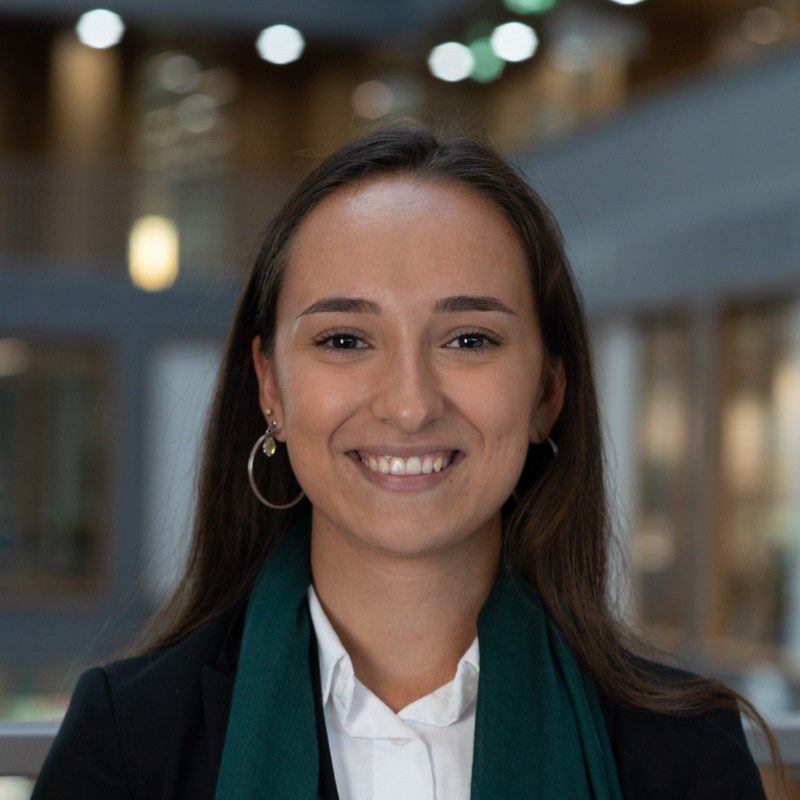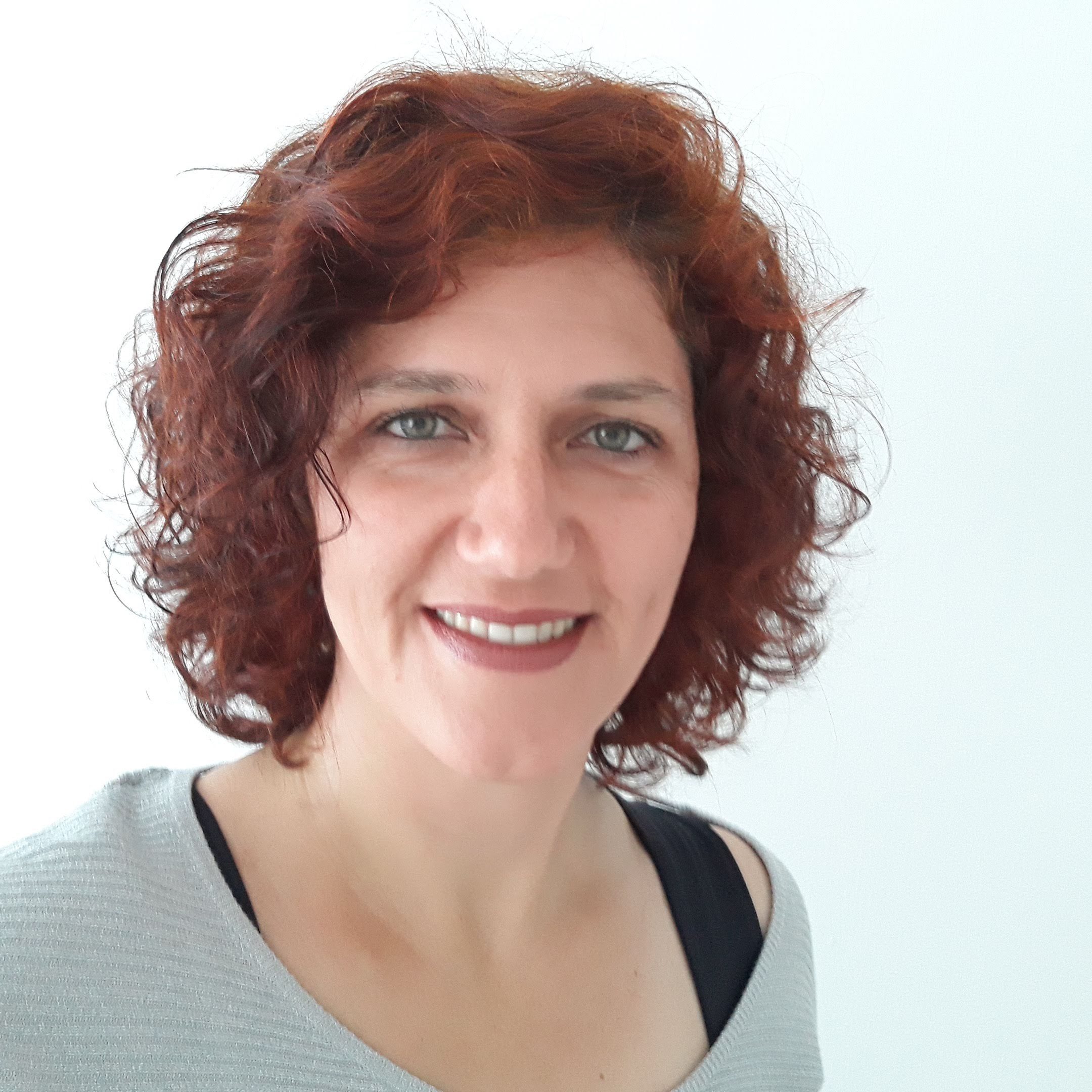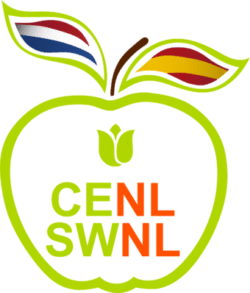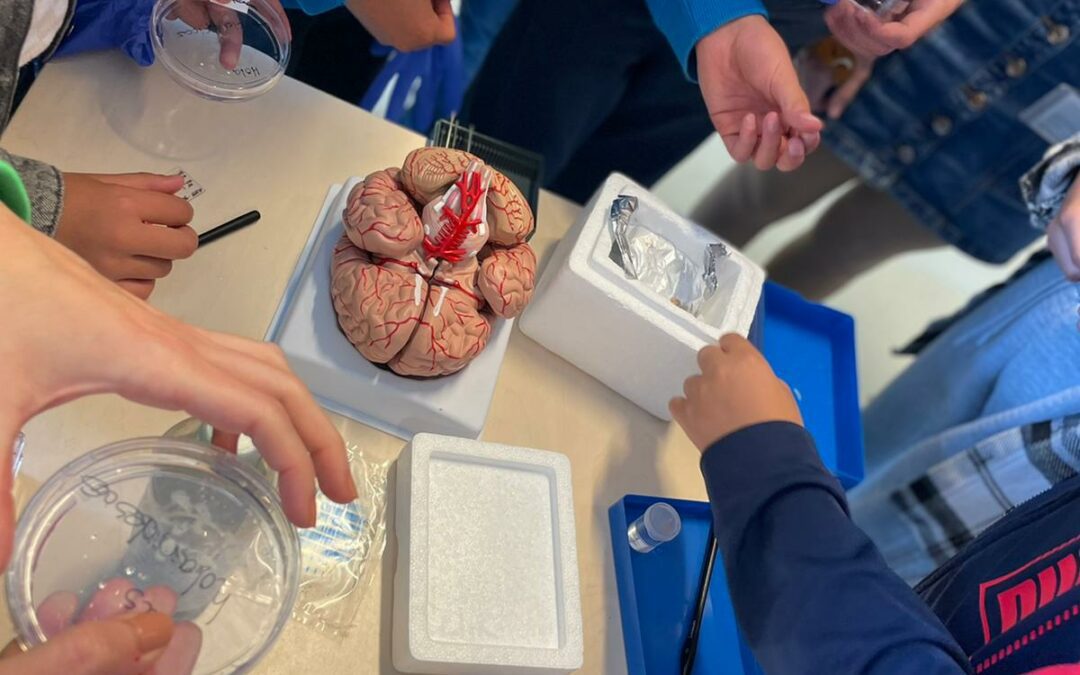Last June, CENLab, CENL’s science outreach workshops designed for young people, were launched. On this occasion they were organized in the Spanish Language and Culture Classrooms (ALCE). The ALCE program is part of the foreign educational action of our Ministry of Education and through it classes are given to Spanish children and young people (or children of Spaniards) between 7 and 17 years of age. Most of them learn Spanish at home. This has undoubtedly facilitated the work of Aitor Tejo, Andrea Vallés, Rodrigo García and Jeniffer Sanguino, the four partners who, on this occasion, were in charge of the workshops. To learn more about this initiative, we talked to Marina Arias, coordinator of the project.
Marina, what workshops did you carry out in the ALCE classrooms?
This initiative was born in 2019, in collaboration with the international school of Arnhem and this year we carried out the second edition with six workshops. Given the profile of the families who bring their children to international schools (parents are usually highly educated and many of them are active researchers), I thought we should take advantage of all the knowledge that existed in the community itself. I organized the first “Science Day” and invited parents who are scientists to participate in the initiative and to share their knowledge with their children and all the “school” children. It was very successful and, from there, it was transferred to the ALCE classrooms.
In the ALCE classrooms we did a pilot project in two classrooms: the one in Utrecht and the one in Amsterdam. In the first one, Aitor Tejo conducted a workshop with 29 students who had different levels of Spanish, between B1 and C1. In Amsterdam, Rodrigo García, Jeniffer Sanguino and Andrea Vallés each did a workshop for 22 students at B1 and B2 levels.
Aitor explained the usefulness of 3D printing applied to medicine and why it can help and improve the work of doctors. He showed his group different materials used in 3D printing and guided them in the design of some parts with the help of software such as Ultimaker, Cura and Invesalius. At the end of the workshop, the students participated in a Kaboot about 3D printing and a printed part was raffled.
Andrea prepared an activity about cancer cells and the importance of proteins for our organism. The students were able to observe samples of different cells and ate “tidbits” with a helical shape, like DNA strands. Jeniffer explained what the hippocampus is, the most important part of the brain for learning. The students were able to manipulate biological samples and set up puzzles in which they had to find the hippocampus, which has the particular shape of a seahorse. Rodrigo closed the session by showing different ways of simulating reality, through computer systems, to interpret the data coming from research such as Andrea’s or Jeniffer’s.
As the ALCE classrooms focus on learning Spanish language and culture, emphasis was placed on the lexicon of the concepts learned that day with our scientists. They played to discriminate the spelling of these terms in a “pasa palabra” organized with the help of Esperanza Meseguer, the referent teacher of these classrooms.
In this way, the students had the opportunity to meet some members of CENL and some of the work that is done through the association.
Did you receive pedagogical training to adapt the content of the workshops to each group of students?
No, we did not receive any specific pedagogical training but it is already included in the program for future editions. In addition, the international school in Arnhem offered to provide training, for scientists, on how to disseminate in a positive way, in accordance with their teaching philosophy.
In any case, we did set ourselves didactic objectives. The first one was that all participants could learn something. We also wanted the workshops to be highly interactive and for the participants to be able to touch and manipulate materials to better integrate the complex knowledge we were going to work with in our classes. And of course, before you start manipulating anything, you have to give a little introductory talk about the subject, what you are going to see, hear and what you can or cannot touch or try.
Aitor, Andrea, Jeniffer and Rodrigo had a lot of freedom to innovate and choose the best way to transmit their scientific knowledge, although I shared with them ideas and practices that worked in the “school” in Arnhem. As the workshops were given by active researchers, they were the ones who prepared the appropriate materials to be handled by the ALCE students. CENL earmarked a small amount of its funds to support this initiative, e.g. for the purchase of materials. The volunteers were also reimbursed for transportation (although the idea is that they live close to the ALCE classroom where they will be teaching their workshop).
How were the workshops received and how did the students in the ALCE classrooms react?
Very well. Both teachers and students enjoyed the workshops very much and are looking forward to repeat them in the next courses.
These first workshops were a pilot experience to warm up before the 2022-2023 school year, what were your objectives?
Yes, that’s right, we wanted to see how the workshops would work in this teaching environment, with children and young people whose mother tongue is not always Spanish. Our goal is to be able to hold one workshop a year in each of the ALCE classrooms. The characteristics and themes of the workshops will have to be adapted to the number of students, their levels of Spanish and the number of CENL volunteers who can participate in this activity.
What initial conclusions have you drawn from this first round of workshops?
The impressions have been very positive. We were all very satisfied, but we realized that we have a lot of work ahead of us. On the one hand, we found that it is much easier to capture children’s attention when they are given the opportunity to actively participate in their learning. On the other hand, at CENL, we have to prepare the workshops in advance so that we can involve as many volunteers as possible and so that everyone enjoys the activity. This is one of the objectives for the 2022-2023 school year. In addition, when we exchanged our opinions, we agreed on the lack of preparation of scientists to carry out this type of activities. We have a great will and a lot of enthusiasm to transmit our knowledge to the youngest in an interesting and fun way, but theory is one thing and practice is another. You notice the shortcomings when you get in front of the children. The next step will be to offer training to scientists as well.
What workshops are scheduled for the 2022-2023 school year? In addition to the ALCE classrooms, you would also like to go to international schools. Have you already confirmed workshops with any of them?
Our intention is to reach all ALCE classrooms and international schools that want to join this initiative. At the moment, the international school in Arnhem, Rotterdam and Amsterdam have signed up. The idea is to work with primary school children, but we have already received requests from two secondary schools to do the same with children aged 12 and above.
MORE INFORMATION ABOUT ALCE CLASSROOMS
https://crepaisesbajos.org/entrevista-a-javier-herreros-gil-director-del-programa-alce/
Can you help us to become more? Become a member and participate. Spread our word on the networks. Contact us and tell us about yourself and your project.

beba arlanzon
Master student in Biomedical Sciences, Neuroscience and Public Health International
She holds a degree in Philology and a PhD in Translation from the University of the Basque Country. She is currently in a period of professional transition oriented towards communication.

Marina Arias
Postdoc at the University of Wageningen
Marina Arias Royo was born in Barcelona and grew up in Madrid. She graduated in Biology at the University of Alcalá de Henares and studied Marine Sciences in Vigo. She worked for four years at the Agricultural Research Center Albaladejito (Cuenca), in the agronomic study of the legume Vicia narbonensis and its content of anti-nutritional substances. She received her PhD from the University of the Basque Country and arrived in the Netherlands, together with her family, in 2018, on a Marie Curie postdoctoral contract. In the last 8 years he has been investigating the agronomic aspects of the Russian dandelion, Taraxacum koksaghyz, the generation of its linkage map and studies on the apomictic behavior of the species. In her spare time, she coordinates the CENLab science outreach program.


